Health
Top 5 Yoga Studios in Dubai for Inner Peace and Flexibility
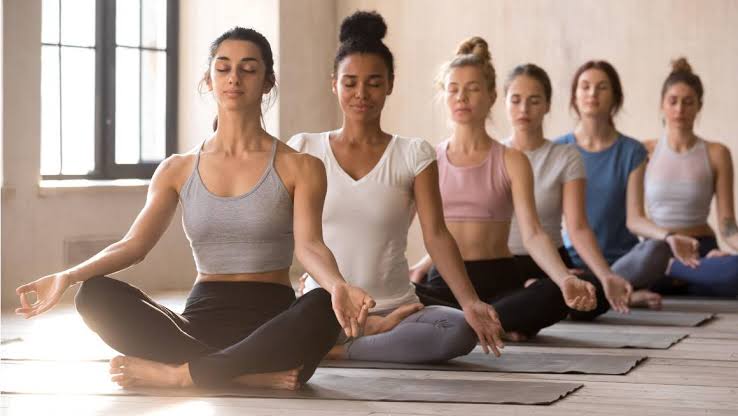
In a city renowned for its fast pace, luxury, and innovation, the need for balance is more essential than ever.
Amid deadlines, high-rise living, and the ever-present buzz of ambition, many are turning to yoga not simply as a form of exercise—but as a deliberate practice of self-alignment, focus, and restoration.
Whether you’re a seasoned professional navigating high-stakes industries, or a wellness enthusiast striving for daily balance, it offers a growing collection of yoga spaces that blend global expertise with calming environments.
These studios don’t just deliver flexibility or fitness—they offer an invitation to slow down, breathe deeper, and reconnect with what truly matters.
Here are five standout yoga studios where serenity, discipline, and strength come together to support your body and mind.
1. SEVA Experience
SEVA is not just a yoga studio—it’s a complete wellness sanctuary. Tucked within a lush garden and intentionally free of digital distractions, SEVA offers a quiet retreat from the fast pace of city life.
With a focus on traditional yoga, meditation, and holistic healing, the studio offers classes like Kundalini, Yin, and Breathwork that invite deep restoration.
Their plant-based café also offers nourishing meals and juices, creating a space for both physical and mental well-being.
It’s well Recommended for mindfulness practitioners, beginners, and anyone seeking emotional clarity.

2. Zen Yoga
Zen Yoga is thoughtfully located in three of our most esteemed areas—Media City, Emirates Hills, and Umm Suqeim—making it easily accessible for those seeking balance and wellness in the heart of the city.
Zen Yoga has built a solid reputation as one of the most consistent and community-centered yoga spaces.
With multiple branches and an inclusive atmosphere, it caters to all levels—offering classes in Vinyasa, Hatha, Yin, Prenatal Yoga, and more.
Each location features highly experienced instructors and a warm, welcoming environment—perfect for professionals looking for a reliable routine that fits a busy lifestyle.
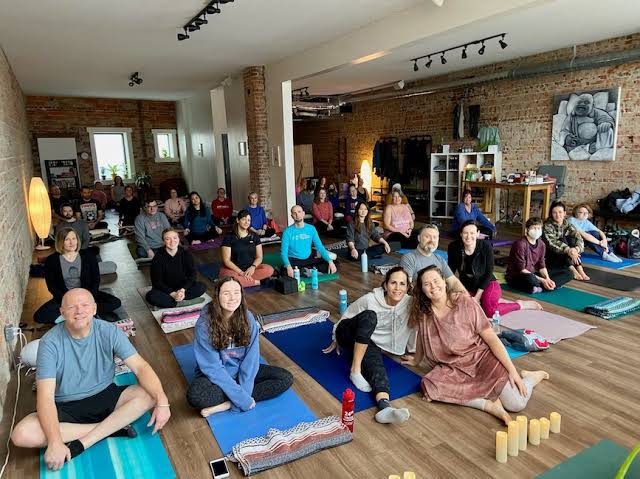
Zen Yoga
3. Yoga La Vie
Yoga La Vie is perfectly situated at The Pointe on Palm Jumeirah—offering a serene, upscale setting where elegance meets wellness by the sea.
Combining the grace of movement with scenic beauty, Yoga La Vie is known for its boutique, beachfront experience. Its offerings include yoga, barre, and Pilates, with a focus on posture, tone, and feminine strength.
Set against the backdrop of the Arabian Gulf, classes here are designed to be both energizing and restorative—ideal for those who seek a mindful escape without leaving the city.
It’s Recommended for professionals and creatives looking for high-quality instruction in a refined setting

Yoga La Vie
4. Dryp
Located in Al Wasl
Dryp is a go-to destination for hot yoga and high-intensity flow classes. If your idea of stress relief includes a good sweat and powerful movement, this studio delivers.
Heated Vinyasa, Sculpt Yoga, and fusion fitness classes are led by dynamic instructors who blend challenge with encouragement.
With a strong community of fitness-minded individuals, Dryp is ideal for those seeking both transformation and motivation.
Highly Recommended for hot yoga enthusiasts, goal-driven individuals, and athletes in recovery.

5. Nilaya House
Nilaya House is a haven for serious yogis and those looking to immerse themselves in the traditional philosophies of yoga.
The studio offers Mysore-style Ashtanga, Iyengar, Pranayama, and guided meditation classes, with a curriculum rooted in lineage and alignment.
With a minimalist, peaceful atmosphere and an emphasis on breath and technique, Nilaya House is where yoga becomes a lifestyle—not just a class.
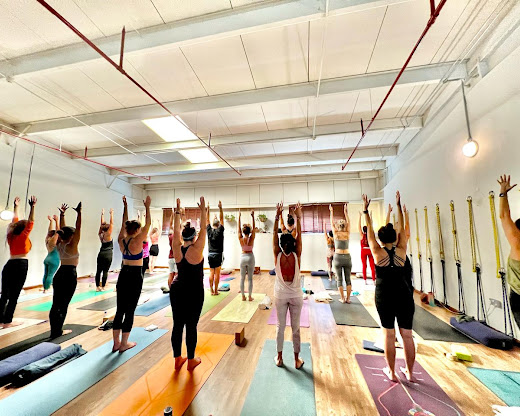
Nilaya House
Conclusion
Dubai’s yoga studios offer more than physical fitness—they provide intentional spaces to pause, recalibrate, and reconnect.
Whether you’re seeking peace after a demanding day, strength to support your goals, or clarity amid the noise, the right yoga studio can be your anchor.
Investing in your inner well-being isn’t a luxury—it’s a strategy for long-term health, resilience, and focus.
Read next post: Dubai Launches World’s First AI Chef
Health
Early Signs of Prostrate Cancer

Prostate cancer can be very challenging to identify in early stages, but here are some warning signs.
One of the most prevalent cancers in men is prostate cancer. The prostate, is a tiny walnut-sized gland in the reproductive system, it aids in the production of semen, the fluid that contains sperm, and is located directly beneath the bladder.
Prostate cancer typically grows slowly, and many people don’t see any symptoms at first. This emphasizes how crucial it is to be aware of warning signs. Early detection of prostate cancer can impact both the course of treatment and the patient’s prognosis.
Urinary difficulties are among the most common early signs of prostate cancer. Because the prostate is located close to the urethra, the tube that carries urine out of the body, any enlargement or change in the prostate can put pressure on the urethra. This pressure can interfere with normal urination and lead to various urinary problems.
Cancer is not always indicated by these urinary symptoms.They may also be brought on by other issues with the prostate, like an enlarged prostate.
Regular Urination
Urinating more frequently than normal may also be an indication. Because it frequently happens at night while you’re sleeping, this frequent urination can be annoying. Your prostate may be interfering with your bladder if you wake up multiple times a night to use the restroom.
Weak Stream of Urine
It’s possible that your urine stream is weaker or slower than usual.As you try to empty your bladder, it might even stop and restart by itself.
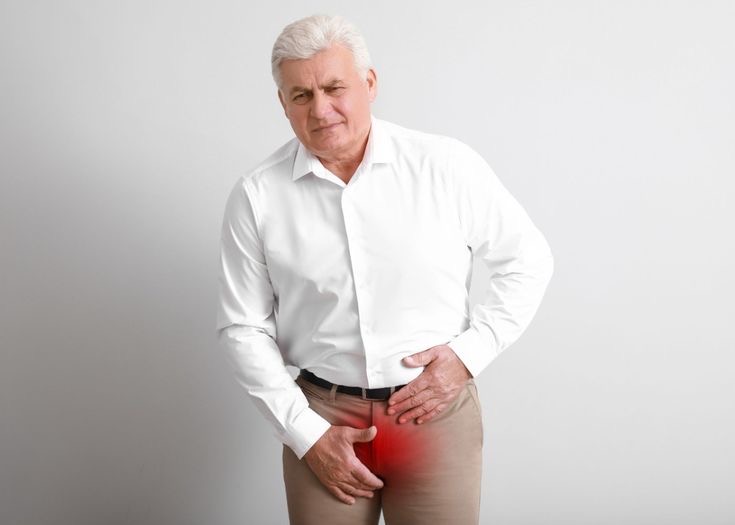
Signs of prostate cancer — Pinterest @Paanienewsgh
Blood in Semen or Urine
Prostate cancer can cause blood to appear in your urine or semen. Blood can have a bright red or brownish color. Don’t ignore blood, even if you only see it once. Prostate cancer or other major health issues may be indicated by blood.
Difficulty in urinating
You might have the urge to urinate but find it difficult to start the stream.Additionally, you might notice that you need to exert yourself to urinate. Even right after urinating, some people feel as though they haven’t completely emptied their bladder.
Sexual Dysfunction
Prostate cancer patients may experience changes in their sexual well-being. Erectile dysfunction (ED), or difficulty achieving or sustaining an erection, is one prevalent problem. Reduced semen production or pain during ejaculation are additional indicators.
Pain in the Bones
Prostate cancer typically spreads to the bones if it metastasizes. Deep pain in your legs, hips, back, or ribs may result from this.The pain may not go away with standard treatment or may worsen over time.
Pain in the Pelvis
Prostate cancer may be indicated by lower back, hip, or pelvic pain.This kind of pain may feel like a dull ache or pressure and usually doesn’t go away.
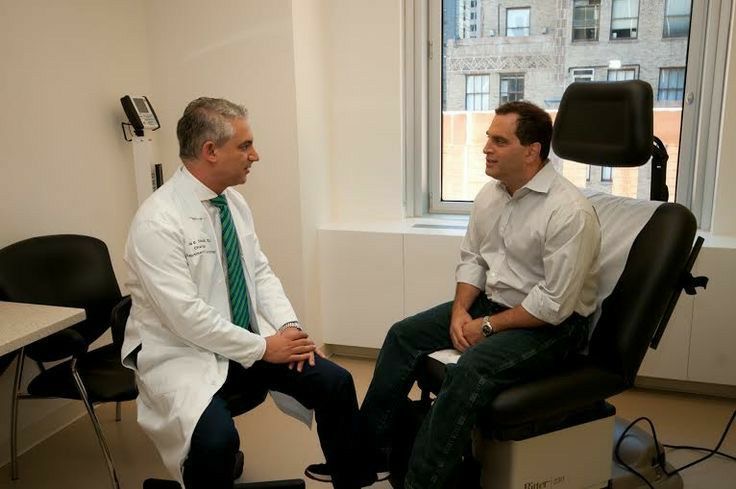
Signs of prostate cancer —Pinterest @Samuelne Gyori
When to Consult a Medical Professional
It is important that you see the doctor, if you experience any of the warning signs, such as difficulty urinating or blood in your urine. Even though these symptoms don’t always indicate cancer, it’s still advisable to get checked out.
don’t miss out: Fibermaxxing—How Experts Say It Supports Digestive Health Wellness
Health
The Most Powerful Antioxidants That Slow Aging

Time never stops, but the way it shows up in our skin, energy, and overall health isn’t only about age, it’s also about how we take care of ourselves. Antioxidants play a big part. They protect our cells from daily stress, pollution, and sunlight. Here are a few key ones that can help slow down the signs of aging.
Vitamin C
This is your skin’s best friend. Vitamin C is like the encouraging coach that tells your skin to produce more collagen, keeping it firm and bouncy.
Vitamin C helps your skin stay firm by supporting collagen. It also guards against sun damage and keeps your skin from looking dull. You can get it from citrus fruits, berries, and even bell peppers.

Vitamin E

Vitamin E works with vitamin C to keep your skin soft and healthy. It helps your cells stay strong. You can find it in nuts, seeds, and leafy green vegetables.
Resveratrol
Resveratrol is a plant compound in red grapes and berries. It supports heart health, may help you live longer, and calms inflammation that makes aging faster.
CoQ10
Your body produces CoQ10 naturally, but less as you get older. It helps your cells turn food into energy while fighting off damage. Fatty fish and organ meats are natural sources.
Carotenoids
Carotenoids are what give carrots, sweet potatoes, and spinach their rich colors.
Polyphenols

Found in tea, coffee, and dark chocolate, polyphenols support circulation, sharpen your mind, and reduce stress on the body.
Glutathione
It helps flush out toxins from your body and keeps your immune system strong. You can give it a boost by adding simple foods like garlic, onions, and broccoli to your meals.”
Simple Ways to Get More Antioxidants
Eat more colorful fruits and veggies.
Add nuts and olive oil to your meals.
Choose green tea instead of sugary drinks.
Read Next Post: Perfume 101: 4 Scents Guaranteed to Get Compliments Before October
Health
Fibermaxxing—How Experts Say It Supports Digestive Health Wellness

Fibers come from real plant food such as vegetables, whole grains, fruits, beans, seeds, and nuts. It can also be obtained from its supplements. So Fibermaxxing, simply put, means making fiber a consistent part of your daily meals to support gut and overall health.

Health fiber food -Pinterest @lizaluxe’s
Why is it beneficial
Here are the main reasons experts say you should eat fiber.
Feeds good bacteria: By consuming a lot of fibre and different kinds of it, you’re giving the healthy gut bacteria lots of food to grow on.
May Help With Weight Loss: Adding it to meals and snacks has many advantages, one of which is that it makes you feel satisfied in between meals and might lessen overeating tendencies.
Helps with constipation: High quantity softens and increases the size and weight of faeces. It aid in the solidification of loose, watery stools. This is because fibre absorbs water and increases stool volume.
Lowers Cholesterol and Controls Blood Sugar: The soluble found in beans, oats, flaxseed, and oat bran may help the body avoid absorbing some of the cholesterol in other foods. As a result, bad cholesterol may decrease. Also assist in regulating blood sugar level and also help diabetic patients lower their blood sugar. Promoting a healthy heart and preventing diabetes.

Ways to add fiber to your meal – Pinterest @ Max B
Easy Ways To Include Fiber In Your Meal
Remember, too much of anything is not good. Add fiber slowly so your body can adjust. If you increase it too quickly, it can overwhelm digestion and cause gas, bloating, diarrhea, or cramping. Gradual changes help prevent these issues.
- Try to make sure every meal contains either fruits, vegetables, or both. For example, add veggies to lunch and dinner, and fruit bowls for breakfast. Also when you want to snack, let fruit be your focus, nuts, and seeds. You can include them in other dishes like stir-fries, salads, and yoghurt.
- Switch to whole grains. Let at least half of your daily grain intake be whole grains. Select breads that contain a minimum of 2 grams of fibre per serving. The first ingredient listed on the label should be whole wheat, whole-wheat flour, or another whole grain. Additionally, try other whole grains like quinoa, brown rice, wild rice, buckwheat, and whole-wheat pasta.
- Legumes such as beans, peas, and lentils are excellent fiber sources. Add them to soups or salad. Prioritize whole-food sources of fiber over supplements whenever possible.
- Make sure you consume whole food fiber rather than supplement fiber.
Simple way to add fiber to your diet today:
- Whole-grains such as barley, bulgur, brown rice, and whole-wheat bread or pasta.
- Fruits.
- Vegetables.
- Beans, peas, and other legumes.
- Nuts and seeds.
For Women it is medically recommended that 21 grams are for those older than age 50 and 25 grams for women age 50 or younger.

Healthy plate of fiber -Pinterest @Emy
Conclusion
For a happier gut, better digestion, steady blood sugar, and lower cholesterol, eat more fiber the smart way daily and mostly from plants.
Note: if you have existing health problems like IBS or small- bowel issues consult with a gastroenterologist or dietician before fibermaxxing.
also read: Healthy Eating on a Budget – Affordable Nutrition Options in the UAE
-

 Fashion2 months ago
Fashion2 months agoJennifer Lopez in Saree at Netra Mantena’s Wedding in Dubai
-

 Top Xclusiv3 months ago
Top Xclusiv3 months agoAriana Grande Brings Vintage Hollywood to the Wicked: For Good Paris Premiere
-

 Entertainment3 months ago
Entertainment3 months agoEddie Murphy Peels Back the Curtain in New Documentary Trailer “Being Eddie”
-

 Movies3 months ago
Movies3 months agoThe Devil Wears Prada 2″ Unveils First Teaser Trailer With Meryl Streep, Anne Hathaway
-

 Fashion4 months ago
Fashion4 months agoRahaf Alharbi Glows Like a Golden Goddess in Rami Kadi Couture
-

 Entertainment1 month ago
Entertainment1 month agoChris Evans Returns as Captain America in Avengers: Doomsday, Signaling Marvel’s Next Multiverse Chapter
-

 Fragrance3 months ago
Fragrance3 months agoKayali Launches its First Official Website, Marking a New Era for the Dubai Born Brand
-

 Top Xclusiv2 months ago
Top Xclusiv2 months agoKim Kardashian Tears Up, Says Kanye West Once Accused Her of Faking the 2016 Paris Robbery










